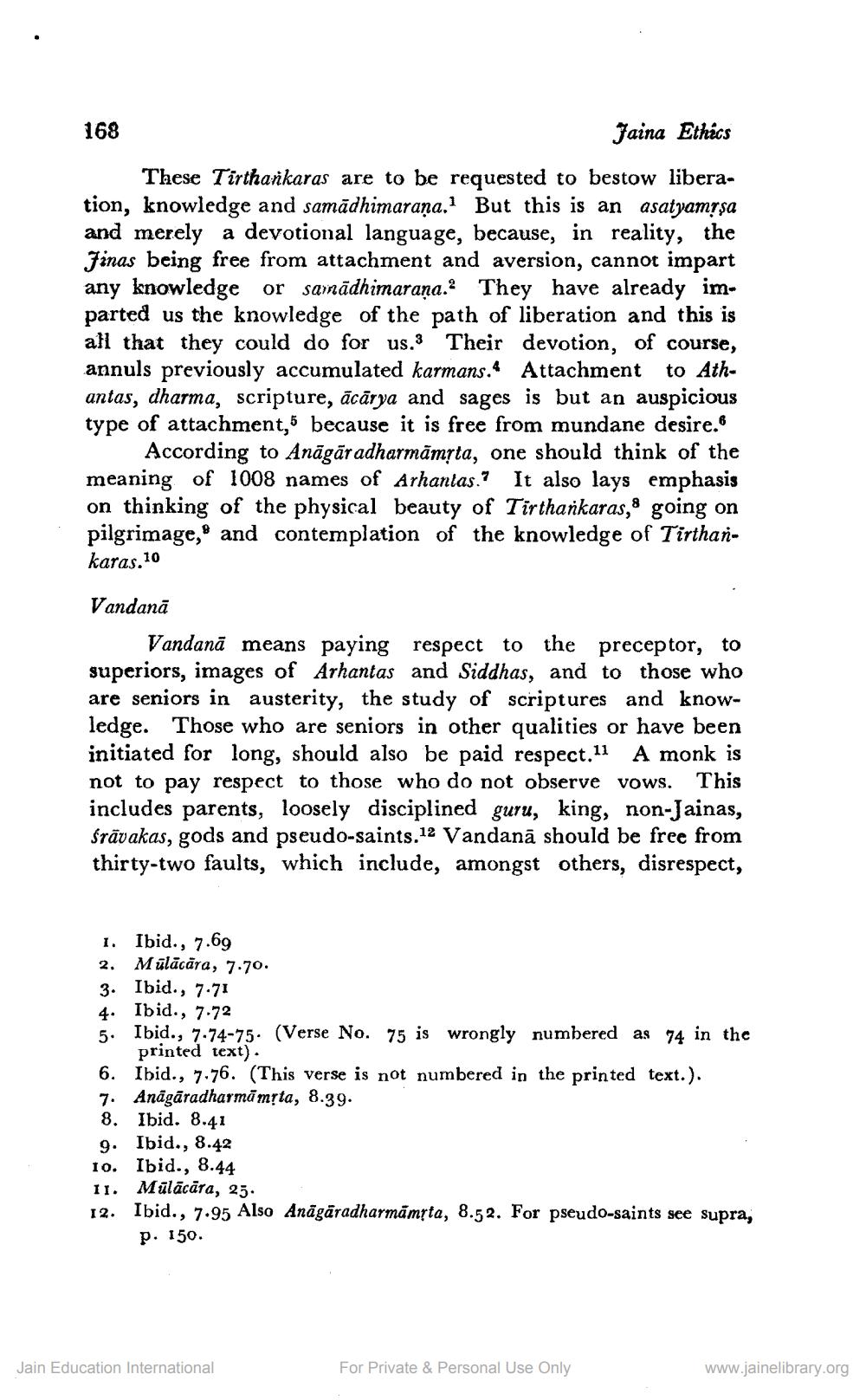________________
168
Faina Ethics
These Tirtharkaras are to be requested to bestow liberation, knowledge and samādhimarana. But this is an asatyamışa and merely a devotional language, because, in reality, the Jinas being free from attachment and aversion, cannot impart any knowledge or sanādhimarana. They have already imparted us the knowledge of the path of liberation and this is all that they could do for us. Their devotion, of course, annuls previously accumulated karmans. Attachment to Athantas, dharma, scripture, ācārya and sages is but an auspicious type of attachment,5 because it is free from mundane desire.
According to Anāgār adharmāmsta, one should think of the meaning of 1008 names of Arhantas.? It also lays emphasis on thinking of the physical beauty of Tirtharkaras,& going on pilgrimage, and contemplation of the knowledge of Tirthankaras.10
Vandana
Vandanā means paying respect to the preceptor, to superiors, images of Athantas and Siddhas, and to those who are seniors in austerity, the study of scriptures and knowledge. Those who are seniors in other qualities or have been initiated for long, should also be paid respect.11 A monk is not to pay respect to those who do not observe vows. This includes parents, loosely disciplined guru, king, non-Jainas, Śrāvakas, gods and pseudo-saints.12 Vandanā should be free from thirty-two faults, which include, amongst others, disrespect,
1. Ibid., 7.69 2. Mülācāra, 7.70.
Ibid., 7.71
Ibid., 7.72 5. Ibid., 7.74-75. (Verse No. 75 is wrongly numbered as 74 in the
printed text). 6. Ibid., 7.76. (This verse is not numbered in the printed text.). 7. Anāgāradharmā mộta, 8.39. 8. Ibid. 8.41 9. Ibid., 8.42 10. Ibid., 8.44 11. Mūlācāra, 25. 12. Ibid., 7.95 Also Anägäradharmāmặta, 8.52. For pseudo-saints see supra,
p. 150.
Jain Education International
For Private & Personal Use Only
www.jainelibrary.org




